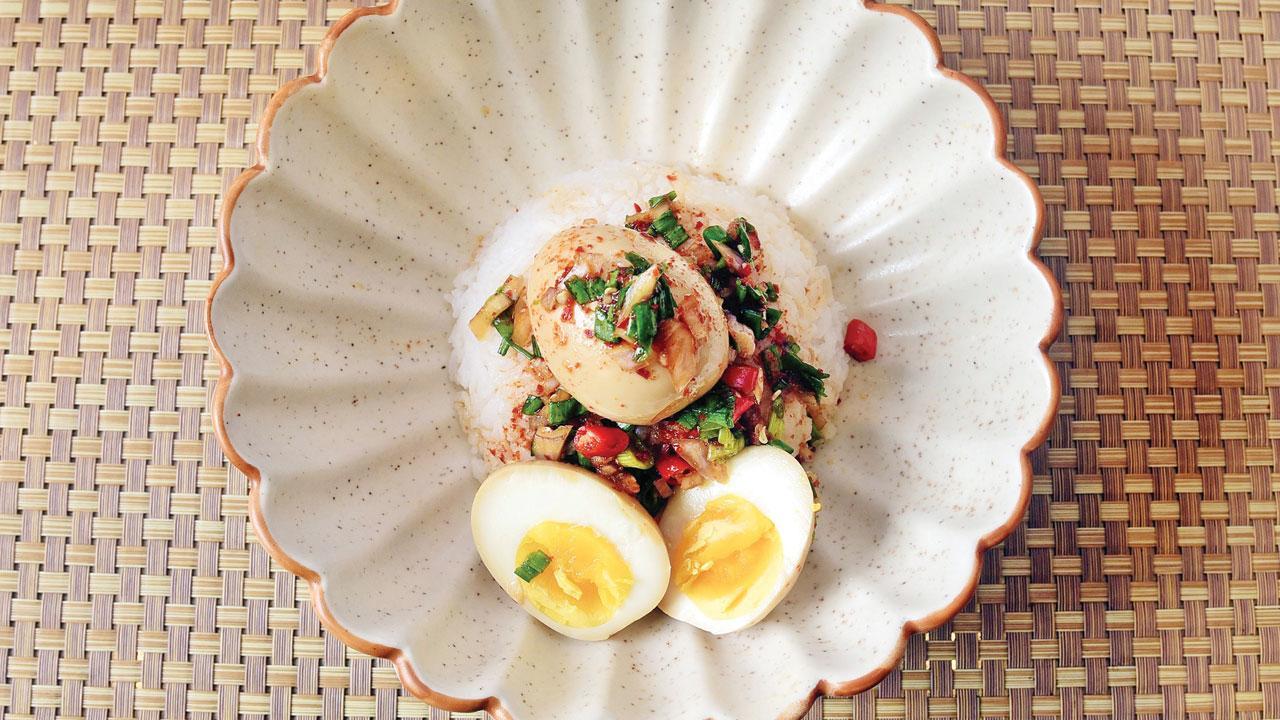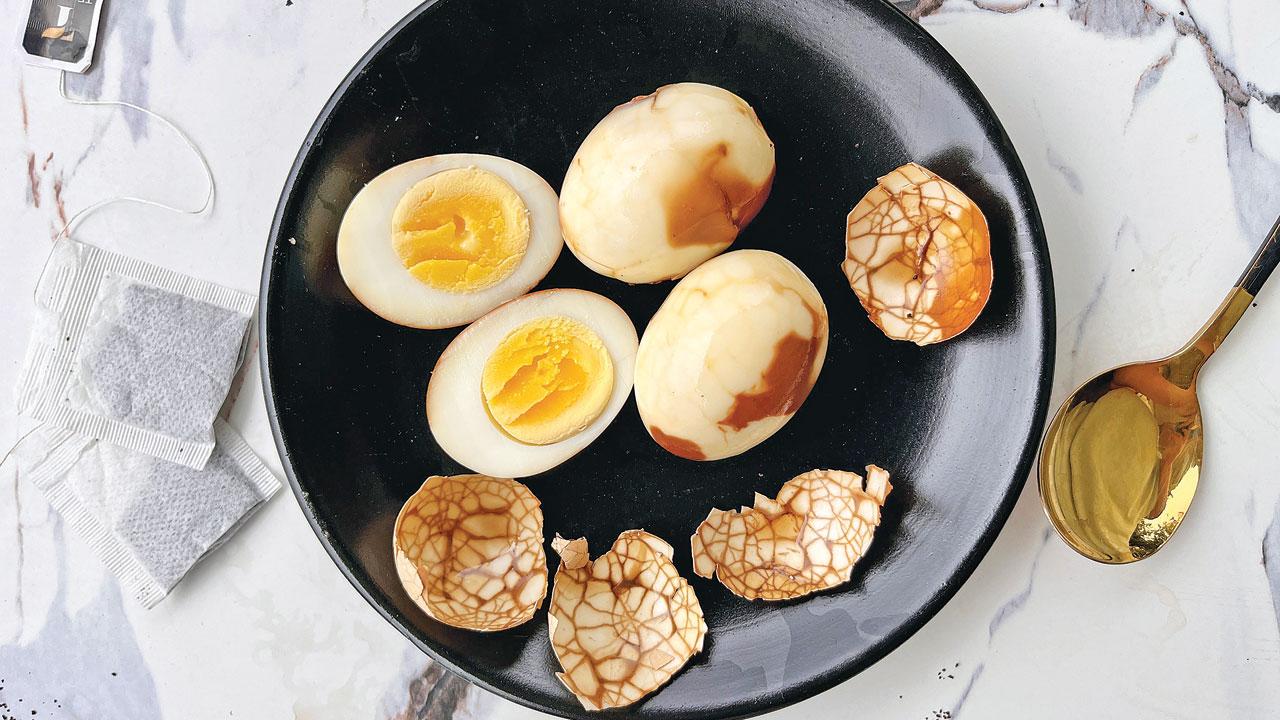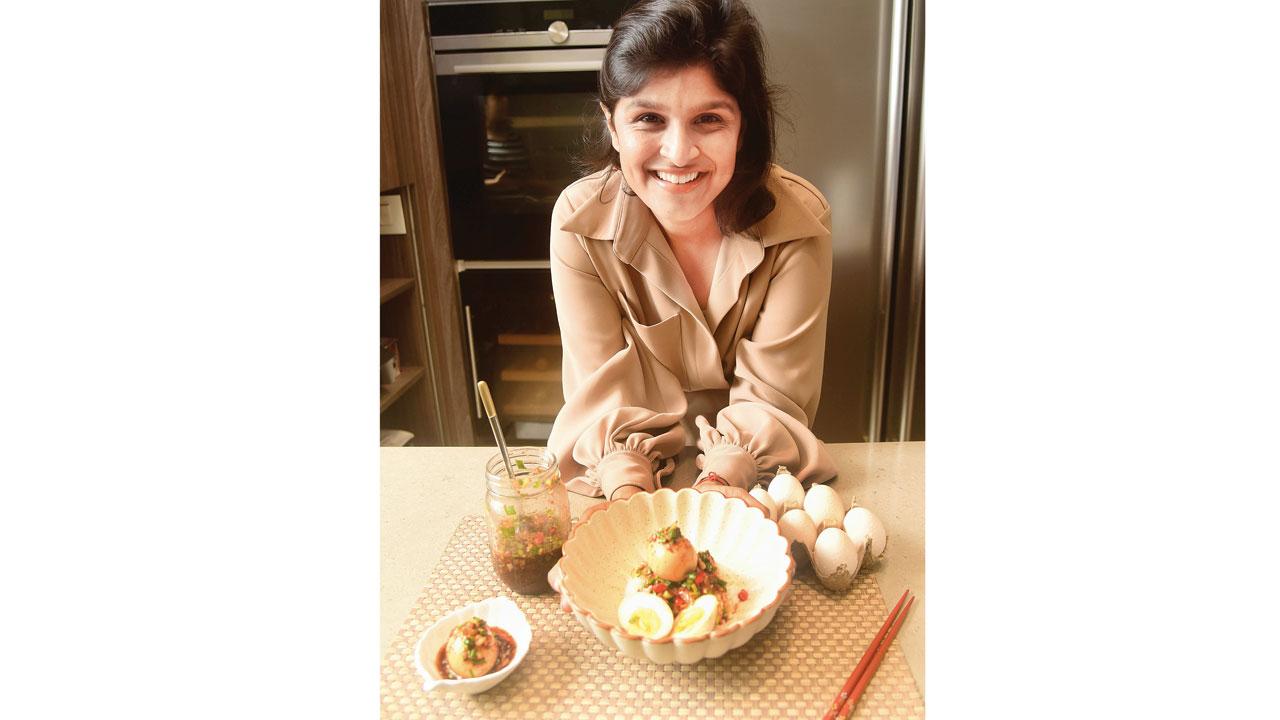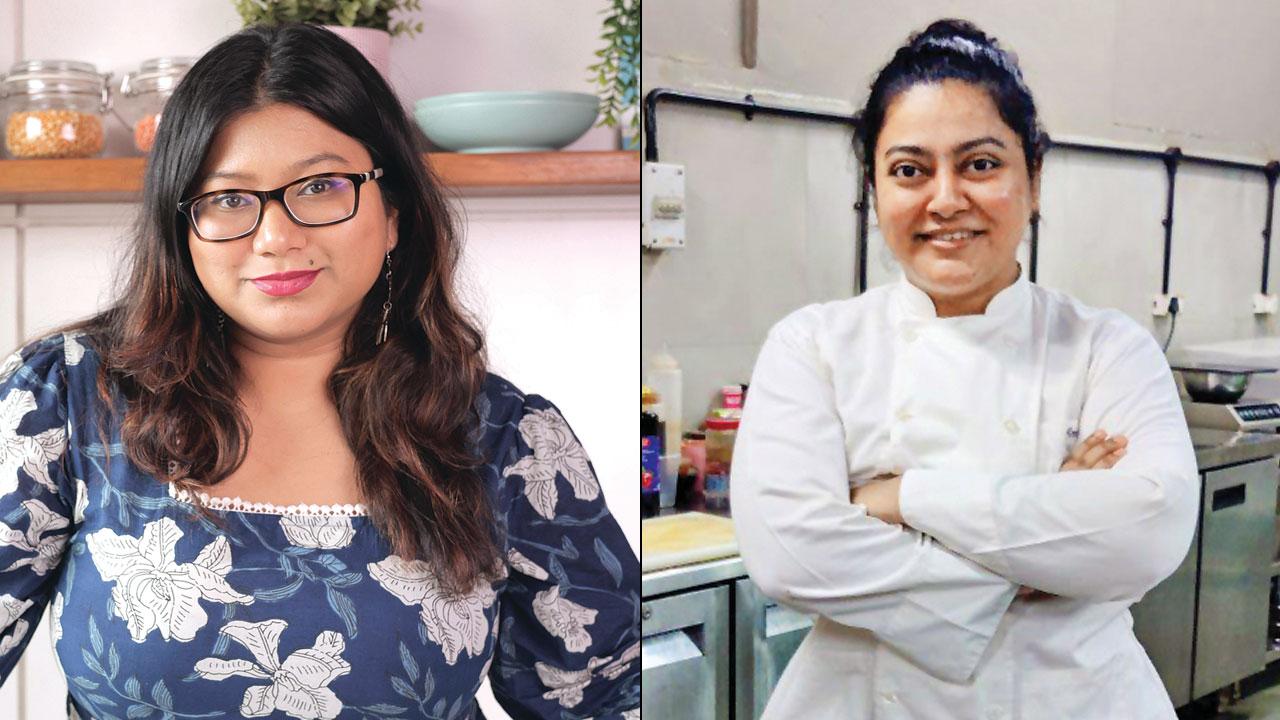Switch from the good ol’ boiled eggs to these snappy marinated versions to take your tastebuds on a trip to the Far East

Representation Pic
Key Highlights
- Eggs are one of the most versatile ingredients
- Besides breakfast, they can also make for a quick lunch or dinner
- Recently, while looking up some recipes, we found a whole new world of marinated eggs
Remember the popular jingle from four decades ago, “Sunday ho ya Monday, roz khao ande.” It used to be a favourite, considering it’s easy to eat an egg every day. Eggs are one of the most versatile ingredients—showing up not only on breakfast plates around the world ,but they can make for a quick lunch or dinner option as well. Recently, while looking up some recipes, we got egg-cited to find a whole new world of marinated eggs and went looking for more. Full of sweet-savoury funkiness, you can marinate eggs for up to 24 hours, and once you remove them from the marinade, they can be stored in the fridge for up to two days. Enjoy them over rice, noodles or just on their own as a quick, healthy snack.
ADVERTISEMENT

Mayak eggs are commonly called Korean drug eggs because they are so delicious that you can’t stop eating them. They look visually enticing, sitting in a jar of soy sauce and sesame oil-based marinade in South Mumbai-based home chef Ayushi
Gupta-Mehra’s kitchen. She calls them a staple. “You need just a few ingredients,” she explains, as she scoops out a drug egg and places it onto fragrant jasmine rice. The marinade, a reddish-brown concoction, with bright red bits of gochugaru (Korean red pepper flakes) and spring onion greens drizzles down the sides of the mound of rice. “Infusing the eggs with new flavours is what makes it exciting,” she says, adding, “It’s an overnight recipe. You whip up the marinade on the side while cooking dinner, soak the eggs in it in a mason jar or sealed container, and it’s ready to eat the next day.”
Gupta has been sharing her series of egg recipes on The Foodie Diaries on Instagram for a while now. Korean drug eggs are currently her favourite because they are spicy, and have a burst of flavours searing the tongue. The yolk is jammy, a consequence of boiling them egg-sactly for six-and-a-half minutes. Gupta muses, as an afterthought, that sliced cucumbers would add to the richness of the marinade recipe. “I’ll try those next time,” she smiles. Kandivli-based home chef Sanjana Das explored her interest in cooking during the pandemic. Of the many egg-based recipes she’s worked on recently, Chinese black tea eggs have become a quick favourite.

Chinese black tea eggs with a marinade of tea and soy sauce
The recipe requires patience; it’s not something that can be whipped up for breakfast, she explains, but the outcome is worth it. Das creates a tea broth out of a few whole spices such as bay leaves, star anise, peppercorns, and cinnamon sticks, which imparts a layer of spice to the marinade. The eggs have to be submerged in the tea broth overnight. “The next morning, when you peel off the shells completely, you get a fascinating, dark-coloured marble pattern on the egg white imparted by the black tea mix. You also get a mild aromatic smell and flavour, with a dash of umami. It is salty and earthy, and tastes great on toast for breakfast. Or the eggs can be chopped and added to a salad. They would also taste delicious with a bowl of ramen.” she adds. “As for the leftover black tea mix, I can see myself marinating chicken in the same for my next meal.”

Ayushi Gupta-Mehra created the Korean ‘drug’ eggs recipe to experiment with ingredients found commonly in the kitchen
Another interesting marinade recipe is ramen soy eggs, a Japanese-origin dish that’s originally called ajitsuke tamago. Chef Amal Farooque, founder of the gourmet Mediterranean kitchen Sage & Olio explains the process. “One thing I enjoyed was adding vinegar and salt to the eggs while boiling—it firms them up just enough—and working with the ice-cold eggs.” The eggs have to be “shocked” in an ice-cold bath after they’re boiled for about five to 10 minutes, to halt the cooking process and it keeps the yolks moist—a technique useful for any egg recipe.
“There are no spices in this,” she explains, “only basic Chinese seasoning. I used soy sauce and a type of black vinegar called Chinkiang vinegar instead of Mirin [a rice wine commonly used in Japanese cuisine], a little water, and sugar.” The mixture is then poured over the eggs, and the marinade is, once again, left to soak up the flavours for about three to four hours. “You can eat ramen eggs with rice or noodles, or even add them to humble daal-chawal for a twist—and the leftover marinade can be eaten the next day with plain rice or noodles.” The taste is unusually creamy and fresh. “It doesn’t taste like egg—or even smell like one. The sugar I added didn’t add any sweetness; it just enhanced the umami flavour.”

Sanjana Das and Amal Farooque
Farooque works with multiple egg combinations in her capacity as a baker and has also explored beetroot pickled eggs, which call for yellow mustard seeds, black peppercorns, chillies, and apple cider vinegar. While the combination of spices and beetroot may sound crazy, it’s delicious. “It’s not sweet, although you might think the beetroot is—it turns out sour and spicy, yet with a delicate flavour profile,” she says. If anything, these dishes have certainly egged us on to create our own marinated versions of boiled andas. Get inspired and try your own version.
 Subscribe today by clicking the link and stay updated with the latest news!" Click here!
Subscribe today by clicking the link and stay updated with the latest news!" Click here!












